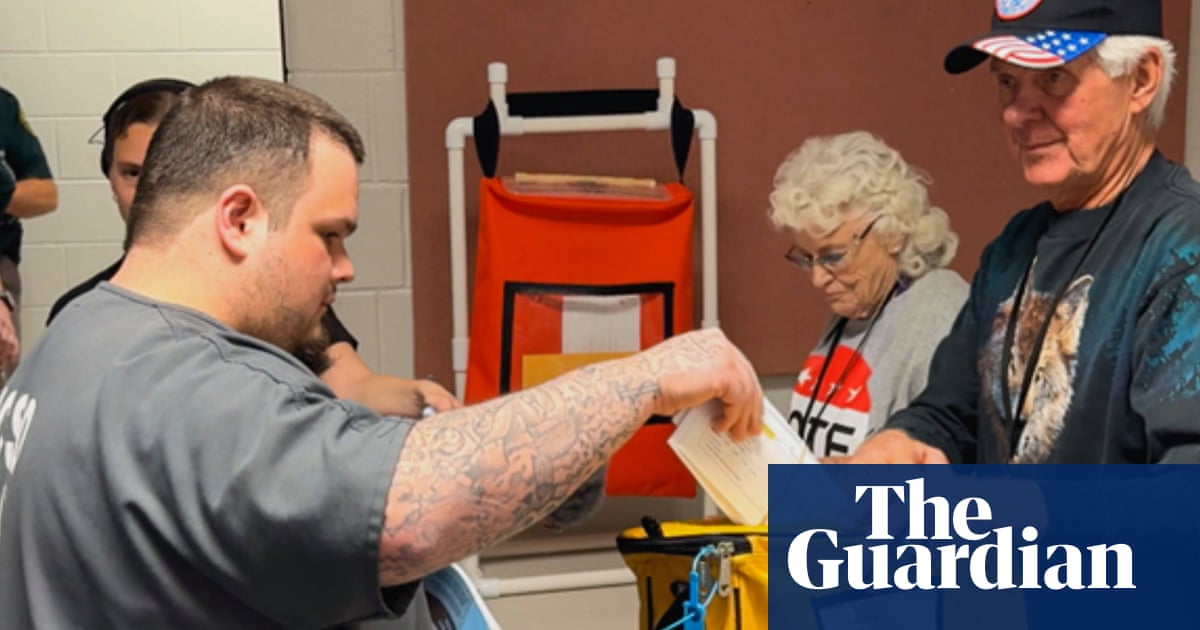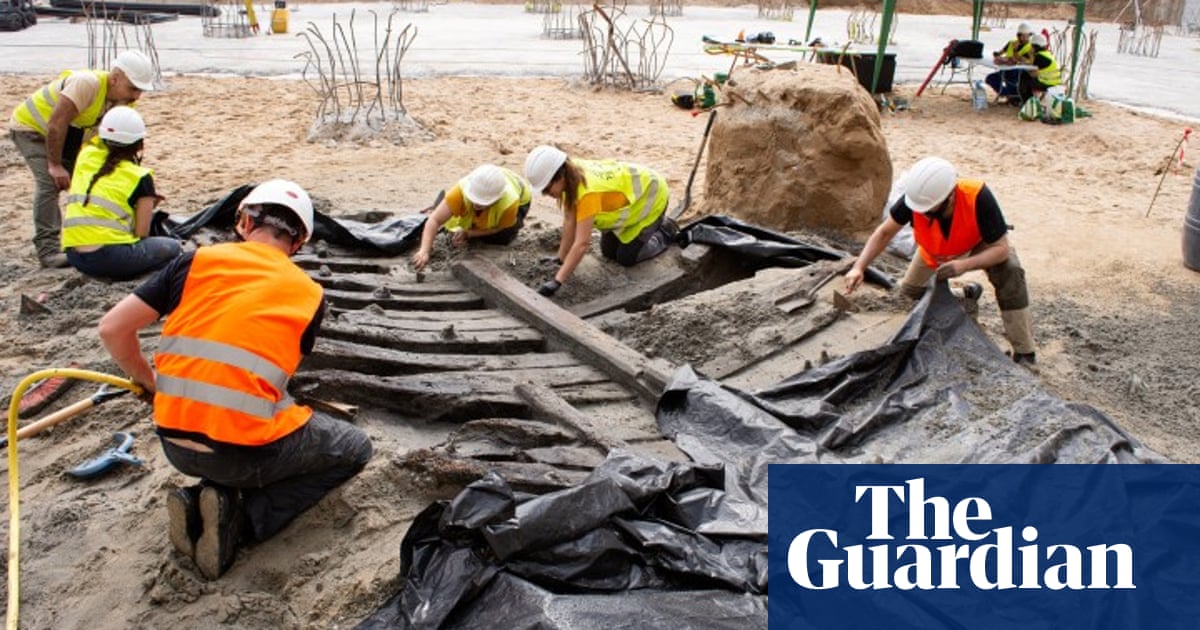Across the US, many executives leading apparel and textiles businesses are scratching their heads.
Tariffs of 145% on goods from China, and tariffs of 10% on goods from much of the rest of the world, have been billed by the White House as a once-in-a-generation efffort to boost domestic manufacturing.
The size of Trump’s tariffs are in flux. This week, the president suggested he could cut the tariffs on China “substantially” – the Wall Street Journal reported the cuts could bring rates down to 50% and 65%.
But business leaders who spoke to the Guardian warned tariffs were unlikely to achieve Trump’s stated aim of bringing more manufacturing back to the US and that businesses would fail as a result of the hikes.
Steven Borrelli, founder of fashion brand Cuts Clothing, voted for Donald Trump in 2016, 2020 and 2024. He backs the US president’s controversial plan to use sweeping tariffs on imports to boost the economy. But he also wants a rethink.
“He’s pro-business, and I don’t believe he wants to hurt American jobs,” Borelli said in an interview. “We’re onboard for this plan – just give us more time,” he added. “We just want more time with any policy changes to adjust, to not destroy our business in the meantime.”
“Every day this continues, more businesses will fail,” he warned last week in a public plea to Trump on X, formerly Twitter, calling for a delay of up to a year. “I trust him to do the right thing,” Borelli said. “I just hope he knows he needs to do it fast.”
The White House did not respond to a request for comment on Borelli’s plea.
Entrepreneur Todd Shelton runs an eponymous fashion brand with a factory in East Rutherford, New Jersey. While the firm makes its clothes in the US, 100% of the material it uses is sourced from overseas, meaning higher duties and higher costs.
This dilemma is not unique in the industry, according to Shelton. “All competitors are exposed to it,” he said. “It will create price increases for the customer. There’s nothing that can be done about it.”
“This is truly going to be inflationary, and will do nothing to bring back jobs,” said Nate Herman, senior vice-president for policy at the American Apparel & Footwear Association. He noted tariffs had been raised across the board: not only on finished clothes from overseas, but key supplies for companies making clothes inside the US, including yarns, fabrics, buttons and zippers.
“You’re hurting the very manufacturers you’re supposedly trying to help here,” he said.
Ultimately, this will hit consumers, added Herman. “All you’re doing is hurting American families [shopping] for a necessity,” he said. “Everybody needs to wear clothes and shoes.”
Prices will “inevitably” increase if tariffs remain in place, said Lance Ruttenberg, who runs American Textile Company, a leading bedding manufacturer based in Duquesne, Pennsylvania. “Across every single industry, it’s hard to think of an industry where prices won’t need to increase.
“I don’t think this is sophisticated economics,” he added. “The price of inputs is going up. That will change the pricing dynamics of all the goods that are affected by them.”
About 30% of the supply chain of American Textile Company is in China. The new steep US tariffs on Chinese exports mean it “is not possible” for the firm to buy what it typically sources from the country, Ruttenberg said in an interview. “When that inventory runs down, we will be in no position to replenish them.”
The company was “bracing for a significant reduction in our ability to run our manufacturing facilities”, he added, unless the tariffs are scrapped or lowered. “You lose the revenue, you lose the manufacturing, and then consequently, you lose people. Eventually, it’s very problematic.”
Even before the tariffs were enforced this month, let alone reached customers in the form of price increases, companies say they were already having an impact on demand.
“We’ve certainly felt it in the form of customer confidence – just the chaos that it’s caused,” said Shelton. “That started in March. Our customers started to understand that something was happening. That led to this uncertainty.”
Few in the industry believe tariffs can swiftly revive US manufacturing, as Trump and his officials have suggested. And they fear other policies advanced by the administration will actively hinder the domestic apparel sector’s growth.
US clothing factories struggle to attract American workers. Firms put this down to a lack of vocational training for young people – something they fear is likely to get worse as Trump moves to dismantle the Department of Education.
While the industry has increasingly sought to alleviate labor shortages by hiring workers from overseas, some operators are concerned that this could be undermined by Trump’s crackdown on immigration.
“While I appreciate and love the idea of Americans at work – who wouldn’t support this? – in our particular world, we don’t believe there are any people who aspire to do the kind of jobs we now rely on from the far east,” said Ruttenberg.
“I don’t know what jobs the administration wants to bring back that have left,” he added. “But I’m pretty confident that the jobs in the textile space are not the jobs they are trying to fill. If they are, we’re in big trouble.”

 7 hours ago
7
7 hours ago
7













































